 Let’s take a trip to Israel. Let’s take a trip through time. John the Baptist has just turned thirty. Now, younger people in our western civilization get nervous about such birthdays…”the big 3-0”…but not John. Back then, thirty was missionary age. John had received his call years earlier and had been eagerly waiting to begin.
Let’s take a trip to Israel. Let’s take a trip through time. John the Baptist has just turned thirty. Now, younger people in our western civilization get nervous about such birthdays…”the big 3-0”…but not John. Back then, thirty was missionary age. John had received his call years earlier and had been eagerly waiting to begin.
“For he was baptized while he was yet in his childhood, and was ordained by the angel of God at the time he was eight days old unto this power, to overthrow the kingdom of the Jews, and to make straight the way of the Lord before the face of his people, to prepare them for the coming of the Lord” (D&C 84: 28).
With the mantle of a prophet he starts preaching repentance and baptism. He speaks with overwhelming power and baptizes many. A great multitude clings to John. But the focus of his message is not on himself. He wants his hearers to cling to someone else—Someone in particular:
“After me cometh a man who is preferred before me…whose place I am not able [or worthy] to fill” (JST John 1: 30, 28).
After several months, that Someone comes to visit John’s outdoor congregation.
“And looking upon Jesus as he walked, [John] saith, Behold the Lamb of God!”
Two of the Baptist’s followers, Andrew and John hear these words and follow Jesus as He heads away from the multitude. Jesus turns around, and seeing these two men following Him, asks:
“What seek ye?”
He knows their hearts. He knows what they’ll say, but He wants them to say it. They answer:
“Master…where dwellest thou?”
Jesus could have said anything to them. But Jesus never says just anything. All of His words have great significance. “Never a man spake like this Man” (John 7: 46). He answers with this:
“Come and see.”
And the scripture says that they “came and saw” and stayed with Him that day. “Come and see.”
The following day Jesus heads north towards Galilee, and finding a man named Philip, says to him:
“Follow me.”
After spending some time with Jesus and his growing number of followers, Philip is convinced. Now he wants to share the good news with his friend Nathanael. He leaves the group, locates Nathanael and says:
“We have found him, of whom Moses in the law, and the prophets, did write, Jesus of Nazareth….”
Nathanael is surprised to hear his friend speak of the Messiah coming from such an obscure little town and asks:
“Can there any good thing come out of Nazareth?”
Philip answers with those familiar words:
“Come and see” (see John 1: 35-51).
Come and see. Come and see! There are so many things we could talk about, but “there is one thing which is of more importance than they all…the Redeemer liveth and cometh among his people” (Alma 7: 7). Come and see.
Some years ago, while flipping through the magazine, U.S. News & World Report, I found a disturbing article titled: “What did Jesus really say?” Read along with me:
“Did Jesus really say the Lord’s Prayer and deliver the Sermon on the Mount as recorded in the New Testament? Probably not, according to a group of Bible experts who recently completed a six-year study of the sayings of Jesus. In fact, claim the scholars, more than 80 percent of the words ascribed to Jesus in the Gospels may be [unauthentic]. That includes Jesus’…speech at the Last Supper (‘Take, eat. This is my body…’) and every word he is said to have uttered from the cross….Based on their historical analysis, they have just published a much abridged ‘Gospel of Mark, Red Letter Edition,’ which argues that only 17 of 111 sayings attributed to Jesus in Mark’s Gospel are authentic. In the book…the scholars have printed in red the words they are most confident Jesus spoke….There is one red verse in the entire book….
“The next phase of the seminar’s study will be no less controversial. Starting in the fall, it will begin examining Jesus’ miracles and deeds as recorded in the Gospels, including the Resurrection” (Jeffery L. Sheler, “What did Jesus really say?”, U.S. News & World Report, July 1, 1991, pp. 57-58).
These scholars have claimed to be in search of “historical Jesus”…the way things really were—the words Jesus really said. But, they are using the wrong methods. After all, they are Bible scholars! How can anyone successfully experiment and reach conclusions to spiritual matters without using spiritual means?
It’s obvious to me who is really behind this whole thing—who else but the enemy of Christ—the “father of all lies” (see Moses 4: 4). If those in search of “historical Jesus” doubt what Jesus said and can get others to doubt as well, then the devil will have another victory. People will begin to reason in their minds that Jesus might not have given all those commandments in the Bible, and therefore it might not be necessary to follow them. Eventually, they will begin to doubt if Jesus is really the God of their salvation.
This search is kind of like the people in Christ’s day asking each other, “Who is Jesus, really?”—as if they could determine the truth about Him by merely discussing it. On one occasion, Jesus inquired of His disciples: “Whom do men say that I am?” They replied, “Some say that thou art John the Baptist…or one of the prophets.” Then Jesus asked, “But whom say ye that I am?” To which Peter answered, “Thou art the Christ, the Son of the living God.” Jesus then said to Peter:
“…flesh and blood hath not revealed it unto thee, but my Father which is in heaven” (Mark 8: 27-29; Matthew 16: 13-17).
Magnificent revelation!…NOT “flesh and blood”…but “my Father!”
(to be continued…)





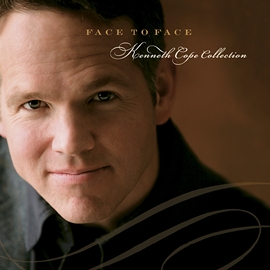


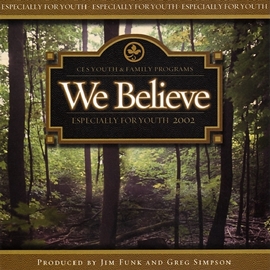

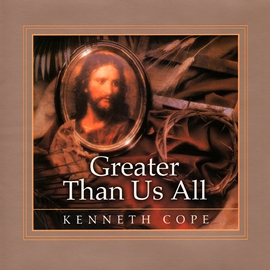
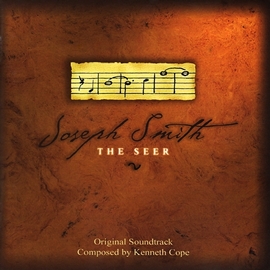
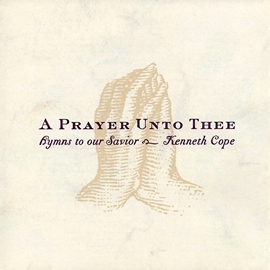









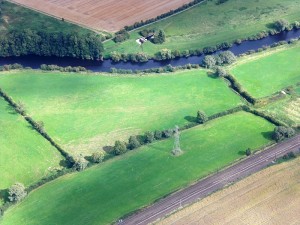








That really gets me angry that so called “Men of Wisdom” think they can pervert, or at the very least dilute the mission and very words of the Savior Jesus Christ.
Yes it is the work of the “father of all lies” behind this, or as Mary Ellen Edmunds likes to refer to him as “What’s his no face.”
Anxiously awaiting part 2.
Love you brother, and thanks so much for all the great work you do.
Isn’t it interesting that man will listen to the Father of all lies but won’t listen to God’s words. I loved when you said “How can anyone successfully experiment and reach conclusions to spiritual matters WITHOUT using spiritual means?” Makes me so grateful for the Holy Ghost and the confirmation he gives me every time I read the scriptures or listen to the Holy Prophets of God that what I am reading and hearing are true. That sweet burning feeling I get in my soul tells me that every word is true. Because of that there is no means to continue to “search for truth” only to be continually fed spiritually and strive to be obedient because of those truthful words. Oh those truthful words from our dear Savior Jesus Christ which are divine and glorious because of our God. I am so grateful for “truth” and the knowledge I have! And I’m not even a scholar! But I feel like one because of that sweet gift of the Holy Ghost! He confirms ALL truth which makes ME a true scholar! A scholar and a lady that’s me! :)
Thanks Kenneth, I loved this and am anxious for part 2! Love your thoughts! Keep em coming brother!